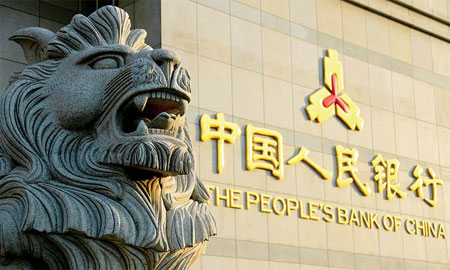'Chance' to open capital account
 0 Comment(s)
0 Comment(s) Print
Print E-mail China Daily, February 24, 2012
E-mail China Daily, February 24, 2012
|
|
|
A branch of the People's Bank of China in Hefei, the capital city of Anhui province. The PBOC says China wouldn't face huge risks if it opens up the country's capital account, a goal that was included in the 12th Five-Year Plan (2011-15). [China Daily] |
China has a "strategic opportunity" to ease curbs on capital flows to take advantage of lower valuations for Western companies and raise the yuan's global status, a central bank study has suggested.
China doesn't face great risks if it opens up its capital account, a goal that was included in the 12th Five-Year Plan (2011-15), the People's Bank of China publication Financial News reported on Thursday, citing a study by the survey and statistics department.
"If we wait until conditions for interest rate liberalization, currency liberalization and yuan internationalization all mature, we might never find an appropriate time to open up the capital account," said the report, written under the direction of head researcher Sheng Songcheng.
"Now is the time to do so because low valuations in overseas markets offer a rare investment opportunity for Chinese companies."
The Stoxx Europe 600 Index, even with an 8 percent rally this year, has fallen 34 percent since July 2007, driven down by global financial turmoil and the eurozone debt crisis.
"Too much emphasis on preconditions could easily make (a process of) gradual reform become negative and stationary, thus delaying the right time," the report said, adding that those presumed "preconditions" and the full convertibility of the yuan could promote one another simultaneously.
The study said China would not face big risks if the capital account was opened up, because most assets and debts in commercial banks are denominated in yuan, and most foreign-exchange assets are bonds whose principal and interest payments wouldn't be easily affected by market price fluctuations.
"In addition, outstanding short-term foreign debt is only a small proportion of China's debts, and risks in property as well as the capital market are basically controllable."
The study said in one to three years, China could loosen its reins on direct investment controls and encourage enterprises to go abroad, while in three to five years, it could deregulate commercial credit controls while floating the yuan globally.
"In five to 10 years, the country could gradually open up trading of real estate, stocks and bonds to foreign investors," it said.
"It's true that we don't need all the preconditions to ripen before opening up the capital account. But some of them must be fulfilled in advance," said Chen Daofu, policy research chief of the Financial Research Institute at the State Council's Development Research Center.
He said now might not be the right time to step up the pace, especially given increasing global uncertainties.
Having a market-based financial system was necessity, he said. "If China wants to open up to foreign capital, it is better to allow all kinds of domestic players and private capital to enter the arena first."
Partial convertibility under the capital account means China's currency could only fulfill 10 percent of its potential international role, said Ma Jun, chief economist at Deutsche Bank Greater China.
He said China should further loosen the quota limit for foreign capital to invest in the domestic capital market.
Murtaza Syed, the International Monetary Fund resident representative in Beijing, said on Wednesday that China needed to free up its capital account more and make the domestic financial system market-oriented, Bloomberg News reported.
"Once you start playing this game, once you start punching holes in your capital account to allow more yuan to come in, it's not hard to imagine that you would reach a situation where it's very hard for you to control it.
"You really need to make sure your domestic financial system is able to absorb those kinds of flows without creating asset bubbles or a credit splurge," Syed said.
On Thursday, the State Administration of Foreign Exchange said in a report that China will face smaller but more volatile capital inflows in the next few years, amid a complicated economic situation and turbulent global financial markets.
Net capital outflows in 2011 mainly took place in the fourth quarter, but declining bank holdings of yuan for purchasing foreign exchanges does not necessarily mean hot money is leaving the economy, it said.
Go to Forum >>0 Comment(s)
 Add your comments...
Add your comments...
- User Name Required
- Your Comment
- Racist, abusive and off-topic comments may be removed by the moderator.






